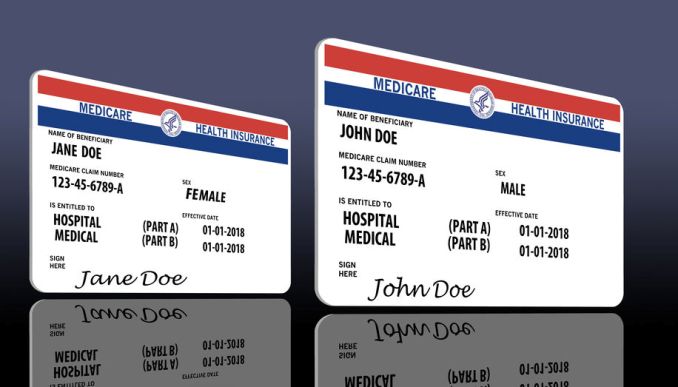
Common Medicare Terms You Need to Know
Enrolling in Medicare can be confusing, as can understanding your plan even when you’re already enrolled. At Benafica, we’re here to help. The first step in truly comprehending Medicare is developing an understanding of the special phrases and words that apply to its plans and coverage.
In this blog, our experts detail several of the most commonly used Medicare terms and their definitions to help you better understand the coverage options that meet your needs. While this list is not comprehensive by any means, you can browse the official Medicare glossary at Medicare.gov.
Annual Election Period
Each year, the Annual Election Period — also referred to as Fall Open Enrollment — occurs between October 15 and December 7. During this time, Medicare Advantage-eligible individuals can either enroll or opt out of an MA plan.
Benefit Period
On the first day you go to a hospital or skilled nursing facility for care, you begin your benefit period. Your benefit period ends when you have not received care from a hospital or skilled nursing facility for 60 consecutive days.
A new benefit period begins on the day you start receiving care from a hospital or skilled nursing facility after your last benefit period ended. There is no limit to the number of benefit periods you can have, but you must pay the inpatient deductible for each new benefit period.
Catastrophic Coverage
Once you reach your maximum yearly out-of-pocket spending for prescription drugs, you will begin receiving what’s referred to as catastrophic coverage. This type of coverage requires you to pay a small coinsurance or copayment for covered prescription costs throughout the remainder of the calendar year.
Coinsurance
Coinsurance refers to the amount of money you may be required to pay for healthcare expenses even after you’ve paid any plan deductibles. For Medicare Part A and/or Part B, you’ll need to pay your coinsurance amount (typically around 20%) after you pay your deductible. For a Medicare Prescription Drug Plan, your coinsurance will vary based on the amount of money you’ve spent.
Copayment
In certain Medicare prescription drug and health plans, you’ll be responsible for paying a fixed amount for each of your medical services (for example, $20 for a prescription or doctor’s visit). The amount of money you pay is referred to as a copayment. Any copayments you are responsible for do not reduce your annual deductible.
Cost Sharing
Your copayments, coinsurance, and/or deductibles are all referred to as cost sharing. Put simply, cost sharing is the amount of money you pay for your healthcare expenses.
Coverage Gap
If you have Medicare and you exceed the initial prescription drug coverage limit, this is referred to as a coverage gap or donut hole. If a coverage gap occurs, you’ll be responsible for paying a greater proportion of your prescription drug costs until your expenses reach the threshold for catastrophic coverage.
Election/Enrollment Periods
The periods of time when a Medicare-eligible individual can choose to enroll or disenroll in a Medicare plan. The four types of enrollment periods are as follows:
- Annual coordinated election period
- Initial enrollment period
- Special enrollment period
- Open enrollment period
Excess Charges
In Original Medicare, an excess charge refers to the difference between the amount a healthcare provider is legally permitted to charge for a service and the Medicare-approved payment amount.
Explanation of Medicare Benefits
After you receive medical care services from a hospital, doctor, or other healthcare provider, you’ll receive a notice — not a bill — called an explanation of benefits. This notice details the amount the provider billed to Medicare, Medicare’s approved amount, the amount Medicare paid, and what you are responsible for paying.
Extra Help
A Medicare program designed to help individuals with limited income and other resources pay for Medicare prescription drug costs, including co-insurance, deductibles, and premiums.
Guaranteed Issue Rights
Also referred to as Medigap protections, these are the rights you have in specific situations when insurance companies are required by law to either offer or sell you a Medigap policy. In such situations, an insurer cannot deny you a policy, place stipulations on a policy, or charge you more for a policy due to past or present health issues.
Guaranteed Renewable
An insurance policy that cannot be subject to termination unless you make untrue claims about the insurer, fail to pay your premiums, or commit fraud. As of 1992, all Medigap policies are guaranteed renewable.
Initial Enrollment Period
This is the seven-month period during which individuals approaching the age of 65 may enroll in Medicare. The initial enrollment period begins three months before the month of the individual’s 65th birthday and continues for three additional months after the month the person turns 65. A person’s Medicare effective date depends on when he or she enrolled in Medicare during the Initial Enrollment Period.
Medicaid
A joint state and federal program designed to help people with limited income and resources pay for their medical costs. If you qualify for both Medicare and Medicaid, most of your health costs should be covered; however, Medicaid programs vary from state to state.
Medicare Advantage Plan
This is a type of Medicare plan offered by private companies that contract with Medicare. Medicare Advantage Plans provide all Part A and Part B benefits, excluding hospice care. If you enroll in this type of plan most Medicare services are covered through the plan, but those services aren’t paid for by Original Medicare.
Medicare Cost Plans
This type of Medicare plan is only available in certain areas. With a Medicare Cost Plan, if you receive services outside of your network without a referral, Original Medicare will pay for any Medicare-covered services.
Medicare Medical Savings Account (MSA)
MSA plans integrate a high-deductible Medicare Advantage Plan with a bank account. Because the plan deposits money in the bank account, you can use those funds to pay for your healthcare costs, but only Medicare-approved expenses count toward your deductible.
Medicare Part A
Also referred to as hospital insurance, Medicare Part A covers inpatient hospital care, hospice care, skilled nursing facility care, and certain home health care expenses.
Medicare Part B
Also referred to as medical insurance, Medicare Part B covers specific physician’s services, medical supplies, outpatient care, and preventive services.
Medicare Part C
Also referred to as Medicare Advantage Plans, these plans are provided by private companies that contract with Medicare. To enroll in a Part C plan, you must have Medicare Parts A and B.
Medicare Part D
Also referred to as a prescription drug plan, Medicare Part D plans are offered by Medicare-approved private insurance companies and other private companies. These plans add prescription drug coverage to:
- Original Medicare
- Medicare Medical Savings Account Plans
- Certain Medicare Private Fee-for-Service Plans
- Certain Medicare Cost Plans
Medicare Summary Notice (MSN)
A notice you receive after your healthcare provider files a claim for Medicare Part A or B services in Original Medicare. It details the following:
- What the health care provider billed for
- The Medicare-approved amount
- How much Medicare paid
- How much you must pay
Medigap Open Enrollment Period
A 6-month, one-time-only period during which federal law allows you to purchase any Medigap policy available in your state. During this time, you cannot be denied a Medigap policy or be subjected to higher costs due to former or current health issues. The open enrollment period begins the first month you have coverage under Part B and are 65 years old or older.
Medigap Policy
Also referred to as Medicare Supplement Insurance, this type of policy is designed to fill gaps in your Original Medicare coverage and is sold by private insurance companies.
Original Medicare Plan
A fee-for-service health plan that includes Medicare Parts A and B. After you pay your deductible, Medicare pays its portion of the Medicare-approved amount for your health care services. You are responsible for paying your share of your health care services (deductibles and coinsurance).
Penalty
The amount of money added to your monthly premium for Medicare Part B or D if you fail to join Medicare when you first become eligible. As long as you have Medicare, you will continue to pay this additional fee; however, some exceptions do exist.
Prior Authorization
Approval that you must obtain from a Medicare Part D plan before you fill a prescription. Depending on the Medicare drug plan you have, your plan may require prior authorization to pay for certain prescription drugs.
Skilled Care
Medically necessary and reasonable care performed by a skilled health care practitioner, such as a licensed therapist or nurse. Care from a home health aid is not considered skilled care.
Special Enrollment Period (SEP)
A period of time during which you may enroll in Medicare Part B or D with no premium penalty. With Medicare Part B, your SEP begins the month after your group health coverage or employment ends. For Part D, you become eligible for a SEP if you lose any form of non-creditable prescription drug coverage through no fault of your own.
Special Needs Plan
A type of plan that provides more specialized health care services for certain groups of people, including those who have specific chronic health conditions, who live in nursing homes, or who have both Medicare and Medicaid.
Specified Low-Income Medicare Beneficiary Program (SLMB)
A federal program that pays Medicare Part B premiums for individuals with low incomes. SLMBs are administered by each state’s Medicaid program.
Supplemental Insurance
A type of insurance that helps individuals pay for health care expenses that Original Medicare does not pay for, including deductibles and coinsurance. Supplemental insurance may provide added benefits that Medicare does not provide and includes retiree insurance from a previous employer and Medigap plans.
Waiting Period
The period of time between the day you sign up for private Medicare or Medigap and the day your coverage begins.
Learn More About Your Health Coverage Options With Benafica
For most individuals, health coverage is a complex, confusing topic — at Benafica, we’re here to change that. It’s our mission to help both individuals and companies better understand the health coverage options available to them, so they can select the plans that best meet their unique needs. To learn more about our services or to request a quote, feel free to call our office today at 651-287-3253 or send us a message, and we’ll be in touch!
Recent
Search
Topics
- Employee Benefits (24)
- HRA (16)
- Insights (12)
- ICHRA (9)
- Employer (8)
- News (8)
- QSEHRA (7)
- COBRA (4)
- Individual Benefits (4)
- Health Insurance Carrier Updates (3)
- Cafeteria Plan (2)
- Individual Life Insurance (2)
- Section 125 Plan (2)
- Videos (2)
- Words From Our Founder (2)
- Agents (1)
- Benafica (1)
- Dental (1)
- GCHRA (1)
- HSA (1)
- Legislative Updates (1)
- Lifestyle Savings Account (1)
- Medicare (1)
